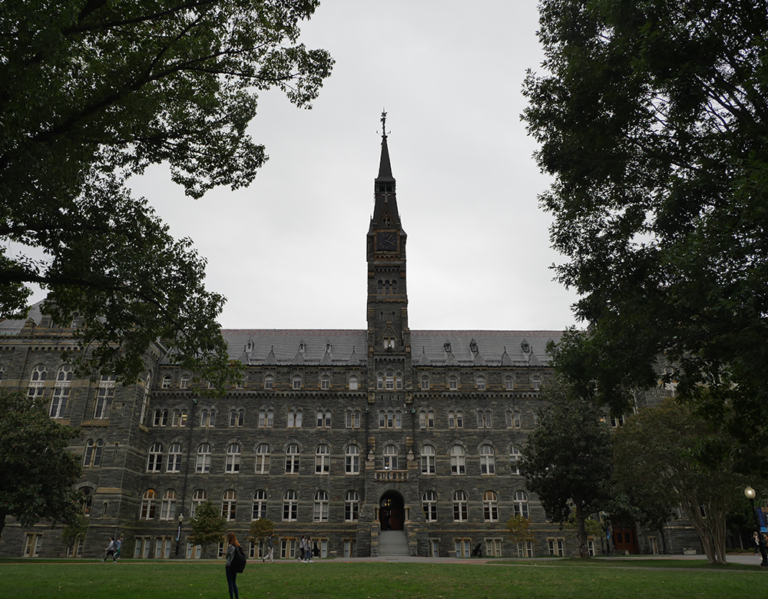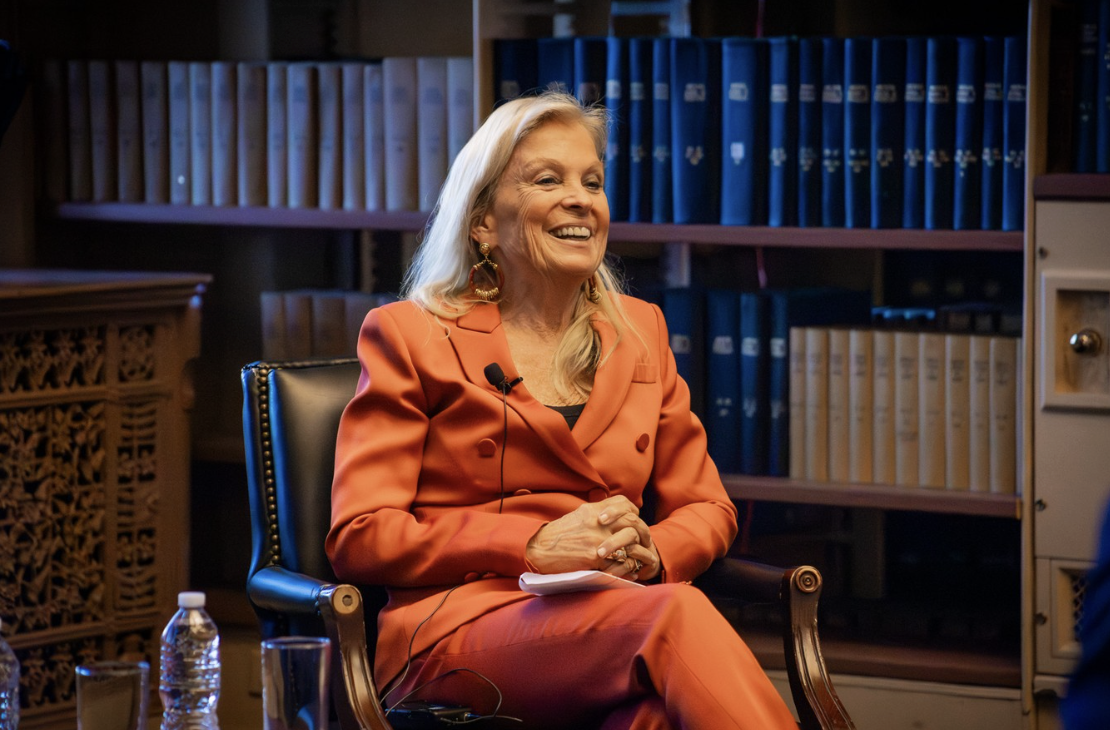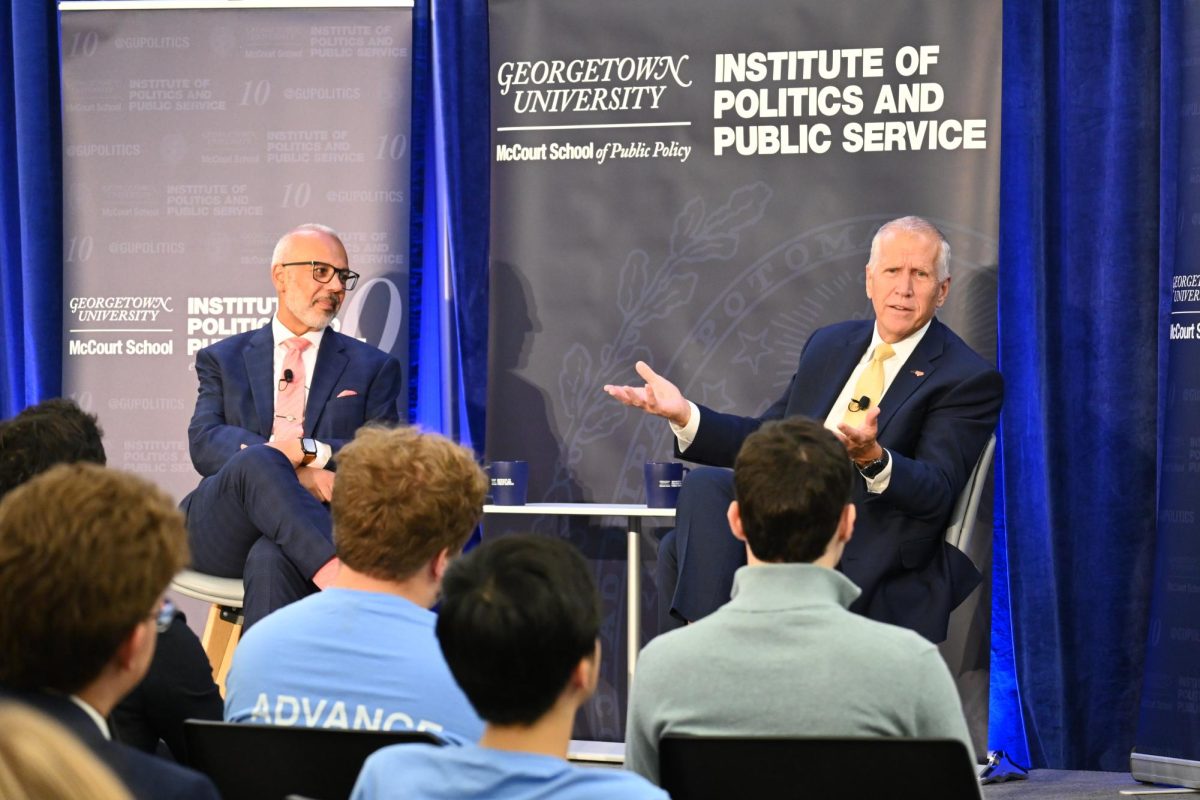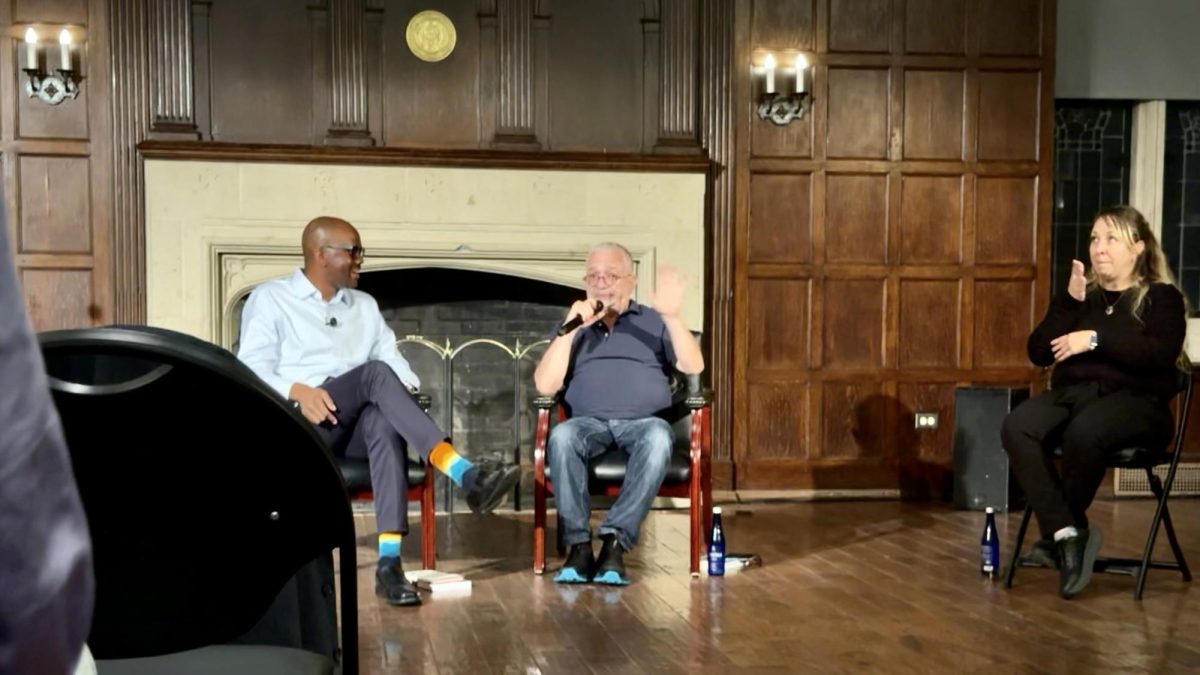Four former U.S. federal government officials who resigned in protest of the Biden administration’s policy on the war in Gaza deliberated the ethical and moral considerations of public servants at an event Sept. 9.
During the discussion — hosted by the Center for Contemporary Arab Studies (CCAS), the African Studies Program, the government department and the Alwaleed Center for Christian-Muslim Understanding — the panelists commented on their motivations for resigning from their positions and their concerns regarding U.S. foreign policy in Gaza. The panel comes as a heightened conversation regarding the war in Gaza continues to elevate, including student protests at Georgetown University in the past weeks.
Fida Adely, director of the CCAS and an associate professor in the School of Foreign Service (SFS), said it is important for Georgetown to facilitate discussions on moral and ethical dilemmas in public service.
“I thought the premier school of international affairs at a Jesuit university should be having such conversations,” Adely wrote to The Hoya. “Part of educating students who want to go into public service must include an attention to ethics.”
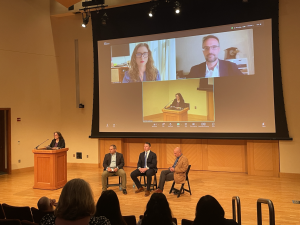
The panel, moderated by Yousef Munayyer, adjunct assistant professor in the SFS, began with an overview of the war in Gaza since the Oct. 7 Hamas militant attacks and introductions of the four panelists. Following a discussion of ethical dilemmas and their considerations for resigning, the panelists took questions from the audience, addressing topics including the upcoming U.S. presidential election and advice for prospective government workers.
Lily Greenberg Call, former special assistant to the chief of staff in the U.S. Department of the Interior, said she grew angry with the actions of both President Joe Biden and Israel.
“I think I realized at a certain point — came to a realization that I had to leave for myself,” Greenberg Call said at the event. “I was angry with him — and furious with him — and did not feel like administration leadership cared about the safety and security of a lot of people that I care about immensely, both Palestinians and Israelis.”
Alex Smith, former senior advisor on maternal and child health in the U.S. Agency for International Development (USAID), said senior USAID leadership stopped him from presenting an abstract on maternal and child health conditions in Gaza at an agency conference.
“What I had hoped to do with the presentation back in May was to at least shine a spotlight that would be hard to ignore on the very predictable maternal and child health outcomes that were guaranteed to happen,” Smith said at the event. “That’s what I was inevitably prevented from doing, which led to my resignation.”
Josh Paul (GRD ’02), former director in the U.S. State Department’s Bureau of Political-Military Affairs, resigned his post in October 2023 shortly after the war began. Paul criticized the Biden administration’s unwavering support for Israel, saying the stance ignored the concerns of senior officials in the State Department.
“Obviously the reason I did it was because of the scope and scale of what was happening and the lack of debate within the administration,” Paul told The Hoya. “You only have one chance to do what’s right and I think it was clear to me that, you know, this was the moment to speak up.”
Harrison Mann, former U.S. army major and executive officer of the Defense Intelligence Agency Middle East/Africa Regional Center, said he feels a duty to share his reasons for resigning.
“I think the experience and the status that I have has given me a voice that a lot of people who feel strongly about this don’t have, and it’s given me an audience,” Mann told The Hoya. “I feel like it’s a responsibility to inform and also, I hope, motivate.”
Sophia Farajallah (SFS ’28), a first-year student who attended the panel, said she wanted to learn more about the Israel-Hamas war and U.S. policy from experts in the field.
“I was compelled to attend ‘Duty to Dissent’ because the ongoing conflict in Gaza is a topic that I feel passionate about, but it’s also a topic that misinformation floats around,” Farajallah wrote to The Hoya. “I wanted to educate myself and learn more about what U.S. foreign policy is doing or not doing to help prevent the atrocities being committed in Palestine.”
Paul said student organizing for Palestine has inspired other government officials who have resigned from their positions in protest.
“You have a couple of resignees — Maryam Hassanein and, I think, Anna Del Castillo — who have both said that these student protests informed their decisions to resign,” Paul said. “So, that’s another way in which student voices have been important, because people do listen to them and it drives some very personal decisions.”
Hassanein, former special assistant in the Department of the Interior, and Del Castillo, former deputy director in the Office of Management and Budget, both resigned from their appointments in the Biden administration and credited in part the university student protests for their decisions.
Farajallah said it is important to promote conversations of ethics in government and stressed the significance of maintaining one’s values in the face of complex moral dilemmas.
“Discussion of moral and ethical considerations like the one that we had yesterday are a reminder and example that speaking up in defense of what you believe in is worth it to maintain your moral integrity,” Farajallah wrote.



